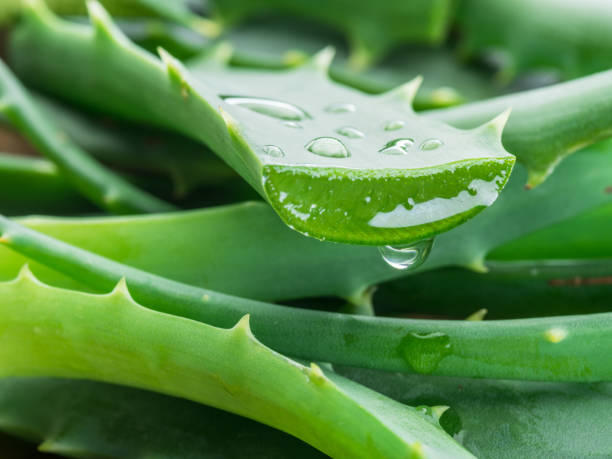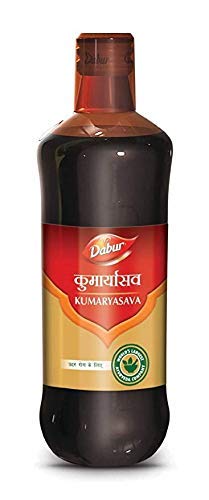Table of Contents
ToggleTABLE OF CONTENTS
Key points
Descriptions of medicinal plant Aloevera
Uses of medicinal plant Aloevera
Precautions of medicinal plants Aloevera
Mode of propagations of medicinal plant Aloevera
Ayurvedic formulations of medicinal plants Aloevera
Frequent ask questions
Conclusiuons


Key points-
Botanical name-Aloe barbadensis
Local name{english}-Aloevera
Hindi-Ghritkumari
Found in all over india.
Used part-Gel inside the leaves.
Descriptions of medicinal plant Aloevera-
Medicinal plant Aloevera is a stemless or very short-stemmed{60-100cm}
Leaves-thick and fleshy.
Flower-in summer on a spike up to 90 cm tall.
Uses of medicinal plant Aloevera-
Aloe vera is a versatile plant known for its numerous uses and benefits. Here are some common uses of aloe vera medicinal plants.
- Skincare: Aloe vera gel is widely used in skincare products due to its soothing and moisturizing properties. It can help alleviate sunburn, moisturize dry skin, reduce acne, and soothe irritation or inflammation.
- Haircare: Aloe vera is beneficial for the hair and scalp. It can be used as a conditioner to promote healthy hair growth, reduce dandruff, and soothe an itchy scalp.
- Digestive Health: Aloe vera juice is often consumed as a health drink to aid digestion and relieve gastrointestinal issues such as constipation and indigestion. It may also have potential benefits for irritable bowel syndrome (IBS) and other digestive disorders.
- Wound Healing: Aloe vera has natural antibacterial and anti-inflammatory properties, which make it effective in promoting wound healing. It can be applied topically to minor cuts, burns, and wounds to help soothe the skin and accelerate the healing process.
- Oral Health: Aloe vera mouthwash or gel can be used to maintain oral hygiene. It may help reduce plaque buildup, soothe gum inflammation, and provide relief from mouth ulcers or canker sores.
- Immune Support: Aloe vera contains various vitamins, minerals, and antioxidants that support overall immune health. Consuming aloe vera juice or supplements may help strengthen the immune system and improve overall well-being.
- Anti-inflammatory Effects: Aloe vera contains compounds such as acemannan that have potent anti-inflammatory properties. These properties may help reduce inflammation associated with conditions like arthritis and promote joint health.
- Cosmetics: Aloe vera is commonly used in cosmetics and beauty products such as creams, lotions, and makeup due to its hydrating and skin-soothing properties.
- Diabetes Management: Some research suggests that aloe vera may help regulate blood sugar levels in people with diabetes. However, more studies are needed to confirm its effectiveness for this purpose.
- General Health and Wellness: Incorporating aloe vera into your diet or skincare routine can contribute to overall health and wellness. It’s important to note that while aloe vera offers many potential benefits, individual results may vary, and it’s always best to consult with a healthcare professional before using it for medicinal purposes, especially if you have any underlying health conditions or concerns.so Aloevera is a very benificial medicinal plants.
Precautions of medicinal plants Aloevera-
Contraindications in case of known allergy to plant.
In pregnancy oral intake of Aloevera is not recommended.
Some times cause gastrointestinal distyress in the infants if given to breastfeeding mothers.
Mode of propagations of medicinal plant Aloevera-
Medicinal plant Aloe vera can be propagated through various methods, including:
- Offsets (Pups): Aloe vera produces offsets, also known as pups or plantlets, around the base of the mature plant. These offsets can be carefully separated from the parent plant and replanted in their own pots or garden beds. Ensure that each offset has some roots attached to it for successful propagation.
- Division: If the aloe vera plant has multiple rosettes or clusters, it can be divided into smaller sections. This involves carefully removing the plant from its pot or garden bed and separating the individual rosettes, ensuring each section has its own roots. These divisions can then be replanted.
- Leaf Cuttings: Aloe vera can also be propagated from leaf cuttings. Select a healthy leaf from the plant and allow the cut end to dry and callus for a day or two to prevent rotting. Plant the cut end in a well-draining potting mix, and keep the soil lightly moist until roots develop.
- Seeds: While less common, aloe vera can be grown from seeds. Harvest seeds from mature aloe vera flowers, and plant them in a seed-starting mix. Keep the soil consistently moist but not waterlogged, and provide warmth and bright, indirect light for germination.
- Tissue Culture: Commercially, aloe vera can also be propagated through tissue culture techniques in laboratories. This method involves taking tissue samples from a healthy plant and culturing them under controlled conditions to produce multiple clones.
Regardless of the propagation method chosen, it’s essential to provide the newly propagated plants with appropriate care, including proper watering, sunlight exposure, and well-draining soil, to ensure their successful establishment and growth.
Ayurvedic formulations of medicinal plants Aloevera-
Medicinal plant aloevera having following ayurvedic formulations.
Kumari Asava
Rajhaparvartani
Vati
Aloevera juice
Pulp
Cream.
Frequent ask questions-
Here are some frequently asked questions about aloe vera MEDICINAL PLANT.
- What are the benefits of using aloe vera for skincare?
- Aloe vera has soothing and moisturizing properties that can help with sunburn, dry skin, acne, and inflammation. It also contains antioxidants and vitamins that promote healthy skin.
- How do I use aloe vera for sunburn relief?
- Apply aloe vera gel directly to the affected area to soothe sunburned skin. Repeat as needed for relief.
- Is aloe vera safe to consume?
- Aloe vera gel and juice are generally considered safe for consumption in moderation. However, some people may experience allergic reactions or digestive discomfort. It’s essential to use aloe vera products as directed and consult a healthcare professional if you have any concerns.
- Can aloe vera help with digestive issues?
- Aloe vera juice is often used to promote digestive health and relieve symptoms of conditions like constipation and indigestion. However, it’s essential to use it cautiously and consult a doctor, especially if you have underlying digestive issues or are taking medications.
- How can I grow aloe vera at home?
- Aloe vera is relatively easy to grow indoors or outdoors in containers with well-draining soil. It prefers bright, indirect sunlight and moderate watering. Allow the soil to dry out between waterings to prevent root rot.
- What are the potential side effects of using aloe vera?
- While aloe vera is generally safe for topical and oral use, some people may experience allergic reactions or skin irritation. Consuming large amounts of aloe vera juice may cause digestive discomfort or electrolyte imbalances. It’s essential to use aloe vera products as directed and discontinue use if you experience any adverse reactions.
- Can aloe vera help with hair growth?
- Aloe vera gel is believed to promote hair growth and improve the overall health of the scalp. It can be applied directly to the scalp as a conditioner or mixed with other ingredients in hair masks.
- How do I care for an aloe vera plant?
- Aloe vera plants require well-draining soil, bright indirect sunlight, and occasional watering. Avoid overwatering, as this can lead to root rot. Prune dead or damaged leaves as needed and repot the plant when it outgrows its container.
These are just a few common questions about aloe vera, but there may be many more depending on individual interests and concerns.
CONCLUSIONS-
In conclusion, aloe vera medicinal plants is a remarkable plant known for its versatile uses and numerous benefits. From skincare to digestive health, aloe vera offers a wide range of applications:
While aloe vera offers many potential benefits, it’s essential to use it responsibly and consult a healthcare professional if you have any concerns, especially if you’re pregnant, breastfeeding, or have underlying health conditions. Overall, aloe vera is a valuable plant that can contribute to a healthier lifestyle when used appropriately.




